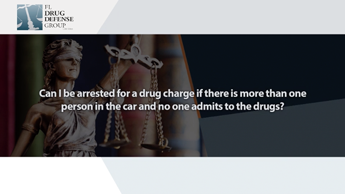Important Dates in Your Criminal Case

Drugs can really mess with your perception of time. Remember when you sat on the couch and lit up a joint sometime in late 2016, and the next thing you knew, it was 2018 and the movement to decriminalize weed was in full swing? Time never moves more slowly than when you are sitting in a jail cell, especially if you have not been convicted of a crime. It is a principle of law in the United States that it is unjust to detain people for prolonged periods of time when you are not sure whether they are guilty of a criminal offense. This is the rationale behind the Sixth Amendment right to a speedy trial, but isn’t “speedy” a subjective measure? How quickly does your trial have to happen to be fair, and is it bad if it is too fast instead of too slow? To understand the timetable of criminal cases and to ensure that your case follows a timetable that is fair to you, contact a Florida drug offenses attorney.
The Arraignment: Three Days After Your Arrest or Indictment
Justice dictates that the state not subject the defendant to unnecessary delays. This means that your case must begin promptly, and the trial is not the first step. An arraignment is a court appearance where the judge formally notifies the defendant of the charges against him or her, and the defendant enters a plea. If you have been in jail since your arrest, then the arraignment must take place 72 hours after the arrest. If you were released shortly after your arrest, whether or not you posted bail as a condition of your release, then it might take somewhat longer for the arraignment, but it is always within a few days of the arrest. If the criminal charges stem from an indictment, where prosecutors present evidence to a grand jury and the grand jury votes to charge the defendant with a crime, then the arraignment occurs 72 hours after the arraignment.
The Trial: 70 Days After Your Arraignment, at Least in Theory
The Speedy Trial Act of 1974 sets the deadline for the beginning of a criminal trial at 70 days after the arraignment. In practice, it can sometimes begin later than that, because some pretrial motions can cause the court to pause the clock while the judge decides whether to affirm or deny the motions. As for how soon the trial can begin, the court should not schedule it sooner than 30 days after the arraignment. This way, the defendant will have time to prepare defenses to present at trial. If you wish to start your trial sooner than 30 days after the arraignment, you may request this in writing.
Contact FL Drug Defense Group About Criminal Procedure
A Central Florida criminal defense lawyer can help you understand the formal aspects of your criminal case and the rights that you can exercise. Contact FL Drug Defense Group in Orlando, Florida to discuss your case.
Sources:
justia.com/criminal/procedure/right-to-a-speedy-trial/
uscode.house.gov/view.xhtml?path=/prelim@title18/part2/chapter208&edition=prelim







